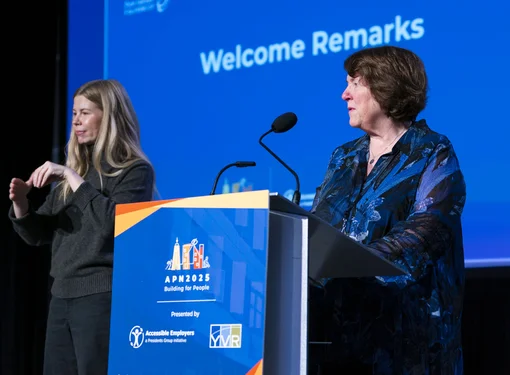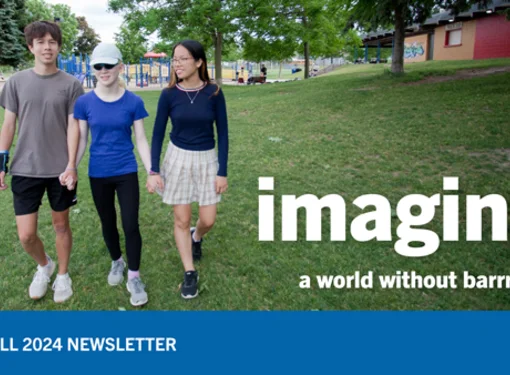Rick Hansen urges Canada to enact federal disabilities act
Vancouver, BC (July 29, 2015) – Rick Hansen is urging government leaders, influencers and the public to support a new non-partisan campaign to introduce federal legislation to ensure accessibility, inclusion and equal opportunity for Canadians with disabilities.
Barrier-Free Canada is an initiative to advocate for enactment of a strong and effective Canadians with Disabilities Act (CDA), a law that will enable people with disabilities to live to their full potential. The CDA would apply to all persons in Canada with disabilities whether visible (physical) or invisible (learning and/or intellectual, mental sensory or mental health) and whether temporary or permanent.
Today, more than four million Canadians live with some form of disability. Due to the aging population, this number will grow to more than nine million over the next 15 years. Aging is the biggest cause of disability. That means that by 2030, 1 in 4 people will have a disability.
Unless Canada acts now, in the coming years, these millions of people will be held back from living full lives, not because of their disability, but because of the barriers that exist.
“For this amount of people to face daily physical, social, economic and attitudinal barriers that limit their full participation in life is unacceptable,” says Rick Hansen, CEO of the Rick Hansen Foundation, a non-profit that removes barriers to liberate the potential of people with disabilities.
Without strong legislation, people with disabilities will continue to experience barriers that make it impossible to carry out common activities that others take for granted such as:
- Physical barriers that limit access to the buildings and modes of transportation
- Economic and social barriers that prevent equal and active participation in society
- Attitudinal barriers that limit access to employment opportunities
These barriers also create an unsustainable economic burden. By removing these barriers, Canada will benefit from the participation of citizens who have much to contribute and an expansion of international trade markets. There are one billion people with disabilities around the world. That is a market that Canada cannot afford to continue to ignore.
David Lepofsky, a member of Barrier-Free Canada’s steering committee, chair of the Accessibility for Ontarians with Disabilities Act Alliance, and a lawyer who is blind says, “We live in a world that’s not designed for us; we live in a society that’s full of barriers, physical, technological, etc. We need to get rid of those barriers so that we can all fully participate. Twenty five years ago last weekend, on July 26, 1990; the U.S. enacted the Americans with Disabilities Act. It’s time for Canada to catch up!”
The CDA would require Canada to be made fully accessible to all persons with disabilities through the removal of existing barriers and the prevention of the creation of new barriers, within the time frames to be set out in the legislation. It would require the Government of Canada to lead Canada to full accessibility; to the extent that federal jurisdiction empowers it. Enacting a CDA is not meant to replace provincial disability accessibility or human rights legislation, such as existing accessibility laws in Ontario and Manitoba. It is meant to complement existing regional laws and benefit Canadians living in provinces with and without provincial disability legislation.
On January 26, 2015, Barrier-Free Canada wrote the leaders of Canada’s major political parties, seeking a commitment to support the enactment of a strong and effective Canadians with Disabilities Act. To date, none of the party leaders have replied.
"I strongly urge all parties to support the enactment of legislation to make accessibility and inclusion a reality throughout Canada, for the benefit of Canadians with disabilities, their families and a stronger nation. A Canadians with Disabilities Act would be a fantastic 150th birthday present to help build our country, whose constitution clearly envisions Canadians with disabilities as equal and contributing citizens. Accessibility and inclusion are human rights deserved by all Canadians.” says Hansen.
Be a part of the journey towards a fully accessible Canada; visit Barrier-Free Canada's "Support Us" page to include your name on their supporters list!







